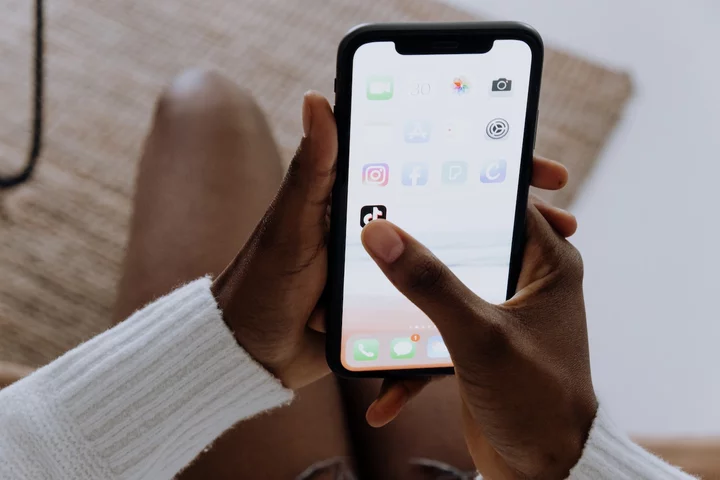Photo by cottonbro studio via Pexels.
California won’t join more than 20 other states and the federal government in banning the TikTok app on state phones and devices — at least not this year.
Senate Bill 74 — a bipartisan effort between Sens. Bill Dodd, a Napa Democrat, and Brian Jones, a San Diego Republican — was shelved while it was on the Assembly floor for a vote before the Legislature adjourns next Thursday, even though it had a relatively smooth path.
The Senate passed the bill 40-0 in late May, with an urgency clause to take effect immediately after being signed by the governor, and it breezed through Assembly committees, including a 16-0 vote last Friday to get out of the appropriations suspense file.
But now, it’s a two-year bill and won’t be considered again until 2024.
The bill was moved to the inactive file at the request of the authors to work out amendments, said Nina Krishel, a spokesperson for Jones. “Specifically, we need to ensure that the bill’s language doesn’t impede any law enforcement investigations,” Krishel said in an email to CalMatters.
The bill would ban TikTok and other “high-risk” apps on state-issued devices, but wouldn’t impact state employees or lawmakers from using TikTok on their personal devices.
The measure was amended from its original version to connect the ban to other state standards on security, and to allow state agencies to allow the short-form video app if it was necessary for official purposes — though that wasn’t defined further.
The state is investigating the safety of the app on state devices, and Attorney General Rob Bonta is part of a nationwide probe into Tik Tok’s impact on the mental health of young people.
President Biden signed a law last December banning federal employees from having TIkTok on their government phones, and at least 22 other states have some form of restriction amid fears that the Chinese government, which owns a piece of Tik Tok’s parent company, could use the app to spy on Americans.
Some critics question whether such bans unfairly target a Chinese-owned social media company.
While Tik Tok didn’t officially oppose the bill, it did send a letter describing security settings on the app, and suggesting the bill be amended to include all types of entertainment and social media platforms or applications.
The company has spent nearly $80,000 lobbying on SB 74 and three other bills this session, according to state records.
But TikTok isn’t the only social media company lobbying the state to protect its interests.
And social media companies are often successful. Last week, a bill by Sen. Nancy Skinner, an Oakland Democrat, to hold social media platforms liable for promoting harmful content about eating disorders, self-harm and drugs died in the Assembly’s appropriations committee. The bill had met with heavy opposition from tech companies, which helped stall a similar bill last year.
Robert Herrell, executive director of the Consumer Federation of California, noted that several bills regulating social media platforms have died due to the effectiveness of the industry’s lobbying.
“You could try to single out a few members, but really this is about the outsized power of that industry — because of the largesse they have,” he said.
###
CalMatters.org is a nonprofit, nonpartisan media venture explaining California policies and politics.

CLICK TO MANAGE